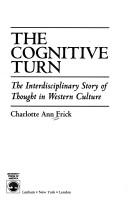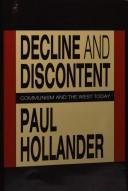| Listing 1 - 10 of 163 | << page >> |
Sort by
|

ISBN: 0819194743 Year: 1994 Publisher: Lanham ; New York ; London University Press of America
Abstract | Keywords | Export | Availability | Bookmark
 Loading...
Loading...Choose an application
- Reference Manager
- EndNote
- RefWorks (Direct export to RefWorks)
Philosophy in literature --- Poetics --- Intellectual life - History.
Book
Abstract | Keywords | Export | Availability | Bookmark
 Loading...
Loading...Choose an application
- Reference Manager
- EndNote
- RefWorks (Direct export to RefWorks)
Book
ISBN: 9782715404694 2715404697 Year: 2021 Publisher: Paris: PUF,
Abstract | Keywords | Export | Availability | Bookmark
 Loading...
Loading...Choose an application
- Reference Manager
- EndNote
- RefWorks (Direct export to RefWorks)
Si, en France, le XIXe fut le siècle des questionnements, notamment sur le rôle de la religion dans les sociétés modernes, le XXe aura été celui de l'organisation de la vie scientifique et de la politisation massive des débats intellectuels, notamment au travers des religions séculières que furent le communisme et le fascisme. Mais, en dépit des changements, des oppositions philosophiques et morales intenses, un facteur de continuité joue un rôle central d'unification des moeurs et des sensibilités de la société et de la vie intellectuelle française : la littérature. Celle-ci a en effet incarné une forme de synthèse de toutes les particularités idéologiques et morales propres à la société française. La France ? Le pays qui aime autant l'esprit que les lettres !

ISBN: 088738434X Year: 1992 Publisher: New Brunswick (U.S.A.) London Transaction Publishers
Abstract | Keywords | Export | Availability | Bookmark
 Loading...
Loading...Choose an application
- Reference Manager
- EndNote
- RefWorks (Direct export to RefWorks)
Communism - 1945 --- -Intellectual life - History - 20th century. --- Political alienation. --- Ideology.
Book
ISBN: 134959251X 0230289363 Year: 2017 Publisher: London, England : Palgrave Macmillan,
Abstract | Keywords | Export | Availability | Bookmark
 Loading...
Loading...Choose an application
- Reference Manager
- EndNote
- RefWorks (Direct export to RefWorks)
Braiding together strands of literary, phenomenological and art historical reflection, Modernism and Phenomenology explores the ways in which modernist writers and artists return us to wonder before the world. Taking such wonder as the motive for phenomenology itself, and challenging extant views of modernism that uphold a mind-world opposition rooted in Cartesian thought, the book considers the work of modernists who, far from presenting perfect, finished models for life and the self, embrace raw and semi-chaotic experience. Close readings of works by Paul Cézanne, Gertrude Stein, Franz Kafka, Gerard Manley Hopkins, Wallace Stevens, Paul Klee, and Virginia Woolf explore how modernist texts and artworks display a deep-rooted openness to the world that turns us into "perpetual beginners." Pushing back against ideas of modernism as fragmentation or groundlessness, Mildenberg argues that this openness is less a sign of powerlessness and deferred meaning than of the very provisionality of experience.
History. --- Civilization --- Intellectual life --- Phenomenology. --- Cultural History. --- Intellectual Studies. --- Modernism (Aesthetics) --- Philosophy, Modern --- Aesthetics --- Civilization-History. --- Phenomenology . --- Intellectual life-History. --- Civilization—History. --- Intellectual life—History.
Periodical
ISSN: 17496977 Year: 1996 Publisher: Abingdon London Taylor and Francis International society for intellectual history
Abstract | Keywords | Export | Availability | Bookmark
 Loading...
Loading...Choose an application
- Reference Manager
- EndNote
- RefWorks (Direct export to RefWorks)
Intellectual life --- Vie intellectuelle --- History --- Periodicals. --- Histoire --- Périodiques --- Periodicals --- Intellectual life - History - Periodicals.
Book
ISBN: 2130362583 9782130362586 Year: 1980 Publisher: Paris PUF
Abstract | Keywords | Export | Availability | Bookmark
 Loading...
Loading...Choose an application
- Reference Manager
- EndNote
- RefWorks (Direct export to RefWorks)
Capitalism --- Intellectual life --- Capitalisme --- Vie intellectuelle --- History --- Histoire --- 330.342.14 --- Intellectual life - History --- Capitalism - History
Book
ISBN: 2130486630 9782130486633 Year: 1997 Volume: 245 Publisher: Paris Presses universitaires de France
Abstract | Keywords | Export | Availability | Bookmark
 Loading...
Loading...Choose an application
- Reference Manager
- EndNote
- RefWorks (Direct export to RefWorks)
Capitalism --- Intellectual life --- Capitalisme --- Vie intellectuelle --- History --- Histoire --- 130.2 --- CDL --- Intellectual life - History --- Capitalism - History
Book
ISBN: 3319644416 3319644408 Year: 2018 Publisher: Cham : Springer International Publishing : Imprint: Palgrave Macmillan,
Abstract | Keywords | Export | Availability | Bookmark
 Loading...
Loading...Choose an application
- Reference Manager
- EndNote
- RefWorks (Direct export to RefWorks)
This book provides a comprehensive survey of Edmund Burke's historical thought, a neglected area of both Burke scholarship and historiography. Ranging from Burke's general conception of history to his accounts of English, European, American, Irish and Asian-Muslim history, this book offers much-needed depth and context to his political life. Sora Sato illuminates Burke's ideas on civilisation and world order with careful analysis of both his well-known historical concepts, such as the ancient constitution of England and the spirit of chivalry, as well as his lesser-known opinions on war and the military. Written with clarity and precision, this book is an invaluable reference for scholars of Burke, early modern European history and political philosophy.
Burke, Edward, --- Great Britain-History. --- Intellectual life-History. --- History-Philosophy. --- Political science --- History of Britain and Ireland. --- Intellectual Studies. --- Philosophy of History. --- Political Philosophy. --- Political philosophy --- Philosophy. --- Great Britain—History. --- Intellectual life—History. --- History—Philosophy. --- Political philosophy.
Book
ISBN: 3319951912 3319951920 Year: 2018 Publisher: Cham : Springer International Publishing : Imprint: Palgrave Pivot,
Abstract | Keywords | Export | Availability | Bookmark
 Loading...
Loading...Choose an application
- Reference Manager
- EndNote
- RefWorks (Direct export to RefWorks)
This book provides a focus for future discussion in one of the most important debates within historical theology within the protestant tradition - the debate about the definition of a category of analysis that operates over five centuries of religious faith and practice and in a globalising religion. In March 2009, TIME magazine listed ‘the new Calvinism’ as being among the ‘ten ideas shaping the world.’ In response to this revitalisation of reformation thought, R. Scott Clark and D. G. Hart have proposed a definition of ‘Reformed’ that excludes many of the theologians who have done most to promote this driver of global religious change. In this book, the Clark-Hart proposal becomes the focus of a debate. Matthew Bingham, Chris Caughey, and Crawford Gribben suggest a broader and (they argue) more historically responsible definition for ‘Reformed,’ as Hart and Scott respond to their arguments.
Reformed Church --- Doctrines. --- Intellectual life-History. --- Religion-History. --- Historiography. --- Philosophy. --- Intellectual Studies. --- History of Religion. --- Historiography and Method. --- Philosophy of Religion. --- Mental philosophy --- Humanities --- Historical criticism --- History --- Authorship --- Criticism --- Historiography --- Intellectual life—History. --- Religion—History. --- Religion—Philosophy.
| Listing 1 - 10 of 163 | << page >> |
Sort by
|

 Search
Search Feedback
Feedback About UniCat
About UniCat  Help
Help News
News